How to Make Homemade Weed Killer
BY LASHONDA TUCKER | AUGUST 7TH, 2023 | BLOG, LAWN CAREGetting rid of weeds doesn’t have to involve toxic chemicals or break the bank. Herbicides pose health risks to humans and the environment and can harm pets. On the other hand, the organic herbicides you can buy at the store and online are expensive. The solution is homemade weed killers! Keep reading to find out how to make a homemade weed killer that actually works.
These options kill weeds without exposing you and your loved ones to poisons that can have detrimental effects, and you probably already have most of the ingredients in your pantry.
How to Make a Homemade Vinegar Weed Killer
A vinegar solution is probably the simplest, most effective, and most popular homemade weed killer you can make. Here’s how to do it with white vinegar or apple cider vinegar.
White Vinegar
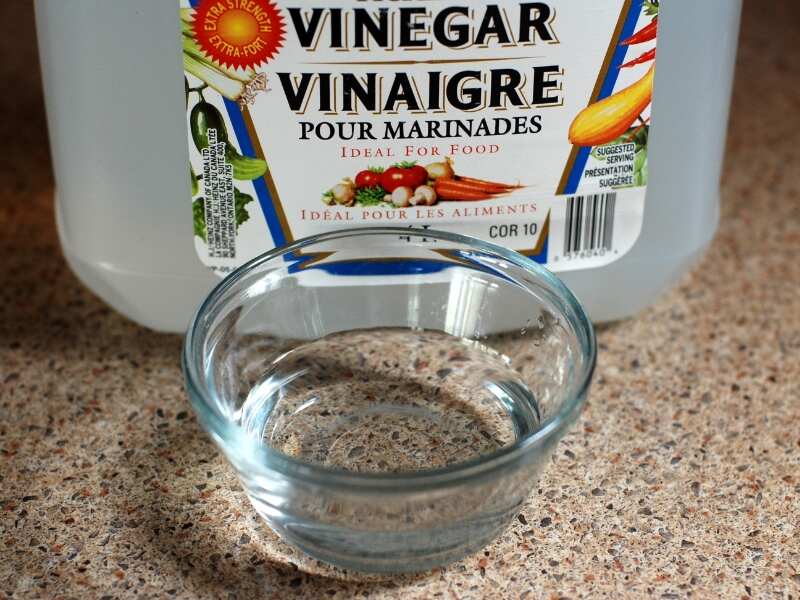
Photo Credit: NatureFriend from Pixabay / Canva Pro / License
Ingredients:
— 1 gallon of white vinegar (make sure it’s at least 5% acetic acid)
— 1 tablespoon of dish soap
— 1 cup of salt
How to Use: Pour the vinegar into a spray bottle and add the table salt. Mix them until the salt dissolves. Next, add the dishwashing liquid, which helps the solution stick to the weeds. You can use Castile soap for an all-natural option. Make sure the solution is well-mixed, then spray it directly onto the weeds you want to kill.
Vinegar and salt can kill any plants, including grass, so be careful not to get the solution on plants you want to keep.
Apple Cider Vinegar
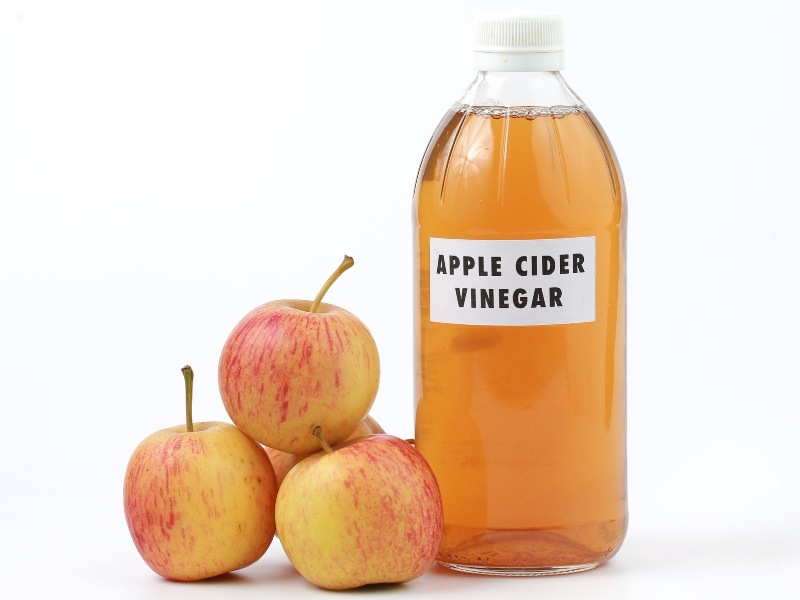
Photo Credit: tylim / Canva Pro / License
Ingredients:
— ½ gallon apple cider vinegar
— ¼ cup salt
— 1 teaspoon dish soap
How to Use: Pour the apple cider vinegar into a large spray bottle. Mix in the salt until it dissolves completely, then mix in the dish soap. Apply the mixture directly to the weeds. This vinegar weed killer will destroy other plants, too. So, be careful when targeting weeds in your flower beds or on your lawn.
How Vinegar Weed Killer Works
The acetic acid in the vinegar breaks down the plant’s foliage by extracting moisture, killing the leaves. This natural weed killer works best on young and small weeds.
Vegetation with deep taproots, like dandelions, may survive treatment. The top growth of these types of plants may be the only part that is killed. If the plants are very young and the roots undeveloped, the weed killer may work.
Herbicidal vinegar, which is 20% acetic acid, is a better solution for larger weeds and perennials. Weeds like crabgrass are better controlled with multiple treatments of herbicidal vinegar. However, herbicidal vinegar can burn your skin and eyes, so be careful when applying it.
Table salt also pulls out moisture. It contains acetic acid, too. Adding it to your vinegar solution improves the weed killer’s ability to dry out foliage.
Liquid dish soap acts as a surfactant that reduces the surface tension and allows the homemade weed killer to spread more evenly across and stick to the leaves, allowing it to penetrate the plant more effectively.
When and How to Apply Vinegar Weed Killer
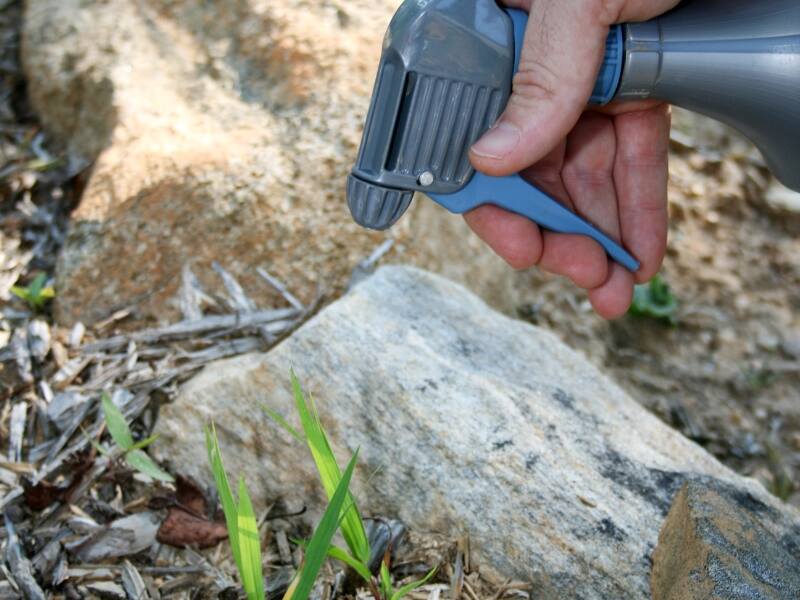
Photo Credit: killerb10 / Canva Pro / License
Spraying during a sunny day helps the acetic acid work more effectively. Spray directly on the targeted weeds. But remember that this solution is non-selective, so in addition to killing most broadleaf weeds, it can also kill other plants. Be careful not to get the solution on your grass or other landscape plants.
Pros and Cons of Vinegar Weed Killer
Although the cons of using a homemade vinegar solution are not as severe as using herbicides with harsh chemicals like glyphosate, there are some things to keep in mind. Here are some advantages and disadvantages of using a vinegar solution to kill weeds.
| Pros | Cons |
| ✓ Less harmful to humans and pets than commercial herbicides. | ✗ Vinegar with 11% or more acetic acid can burn the skin and cause severe eye injuries, including blindness. |
| ✓ Effective on most young broadleaf weeds. | ✗ Kills any plant it makes contact with. |
| ✓ If organic dish soap (i.e. Castile soap) is used, the solution has no synthetic chemicals. | ✗ Some dish soaps have synthetic ingredients that are harmful to the environment. |
| ✓ Acetic acid is biodegradable. | ✗ The typical 5% acetic acid concentration may not kill larger or more established weeds. |
| ✓ Very effective for weed control on patios, gravel, and sidewalks. | ✗ Multiple applications are typically needed. |
| ✓ You most likely already have all the required ingredients and won’t need to spend any additional money. | ✗ Only kills the foliage it is sprayed on and not the roots, meaning new weeds can sprout again unless you manually remove the roots. |
Other Homemade Weed Killers
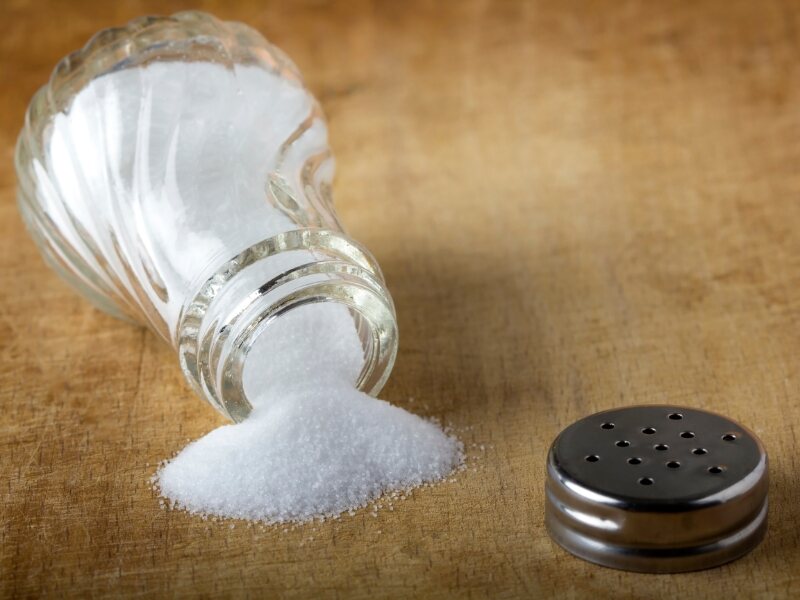
Photo Credit: Sebalos / Canva Pro / License
Here are some other natural weed killers you can make using ingredients you have in your home already or can easily purchase at the grocery store.
Salt
Salt can kill weeds on its own or in a spray solution with water. You can use either table salt or rock salt. Learn how in our article on how to use salt to kill weeds.
Boiling Water
Put a pot of water on the stove, let it boil, pour it into something with a spout – like a teapot – and soak the weeds you want to kill. Apply it to the leaves of the offending weeds and allow it to soak into the roots.
If you have to pour the boiling water from a container without a spout, pour it on weeds in areas away from other plants, like walkways or cracks. That way, if the boiling water splashes or lands in a wider area than on the weeds, you will not damage other plants.
Rubbing Alcohol
Use a ratio of 2 tablespoons of alcohol to 1 quart of water and put the mixture in a spray bottle. Spot-treat the problem plants by spraying the mixture directly on the weeds. The solution kills the plant by draining moisture from the foliage, much like vinegar and salt.
How to Remove Weeds by Hand
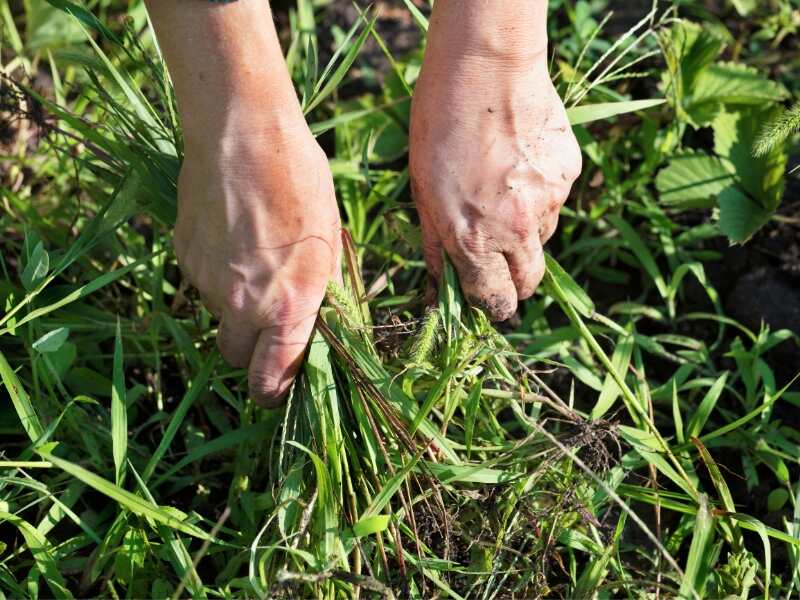
Photo Credit: Sergii Petruk / Canva Pro / License
If you get to the weeds when they are young and there are just a few of them, you can avoid the use of any weed killer. Except, of course, yourself. You can pull up weeds when they have just a few leaves and small root systems.
Weeds are easier to remove manually if the soil is wet, so water the lawn or garden before weeding or wait for a rainy day. When the soil is moist, use your hand, a weeding tool, or a garden trowel to pull up as much of the root system as possible. If you don’t get all the roots, the weeds can grow back.
FAQ About Homemade Weed Killers
Can you use homemade weed killers on weeds in grass?
Yes, you can use homemade weed killers to kill weeds in grass, but you have to apply them carefully. DIY weed killers are non-selective, meaning they kill all plants they come in contact with, not just weeds. When applying homemade weed killers to lawn weeds, use a spray bottle to target the weeds directly, and get as little of it on your grass as possible.
Are homemade weed killers safe for pets?
Yes, the homemade weed killers on this list are safe to use around pets and kids, too. See our list of the best pet-safe weed killers and our article on how to choose pet-safe weed killers to learn which commercial herbicides are also safe for pets.
Is there a DIY weed and feed?
Corn gluten meal is an organic alternative to weed and feed, although most homeowners won’t have this ingredient readily on hand.
You can buy organic herbicides that contain corn gluten meal as an active ingredient, or you can purchase corn gluten meal on its own. It acts as a pre-emergent and keeps weed seeds from germinating. It also contains nitrogen to fertilize the lawn. Corn gluten meal must be applied before seeds germinate, or it can cause the weeds to grow. Use the meal when it is going to be dry for at least two days. Multiple applications are typically required.
Final Thoughts
Commercial herbicides like Roundup contain dangerous chemicals. You can protect yourself, your family, your pets, the environment, and your grass and garden with safer homemade weed killer solutions. Of course, prevention is the best option. Practicing good seasonal lawn care and garden maintenance habits can help keep weeds at bay.
Whether you are using chemicals or DIY options, weed-killing and lawn maintenance is time-consuming and takes planning to be effective. Connect with a local lawn care professional who can help you manage weeds and keep your lawn and landscape healthy.